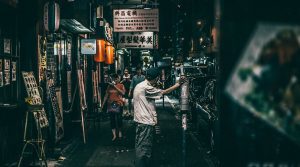Written From… London, England and Mexico City, Mexico
Earlier this year, in a very short space of time we witnessed the two shattering Mexico earthquakes; the first a magnitude 8.2 with its epicentre in the Gulf of Tehuantepec, followed by a magnitude 7.1 with its epicentre in Puebla-Morelos. The states affected were: Puebla, Morelos, Oaxaca, Chiapas, Veracruz, Guerrero and Mexico City.
Aftershocks followed both seismic events, leaving people in a state of anguished anticipation, fearing a recurrence of the devastation witnessed previously. In the days after these devastating natural occurrences, the number of dead and injured continued to rise. Many buildings had been demolished and those remaining were untenable, waiting to collapse at any moment.
As we have always lived in London – a city unfamiliar with these kind of natural disasters – all we could do was worry about those we knew in Mexico, and seek to know more about what was really happening.
An interview was conducted with Pamela from Mexico City days after the earthquakes.
Mexico City: What is the atmosphere like at the moment?
I think we’re all very nervous and worried about another earthquake hitting at any moment. Thanks to god, nothing has happened to my family and me, but I know many people that have been left without homes or have been injured.
I live in fear – I live on the 7th floor and work on the 14th floor of another building; you can imagine my worry.
How have the people responded?
The situation all-round is very difficult, you can go through the streets and see families living there with the few belongings they could rescue – one of the secondary problems that has not helped the situation is that we have had several months of extreme rain. Affected families living on the streets are exposed to rain and floods.
The response of the people has been amazing. Everyone has come together to help with what they can. From moving debris to look for survivors, creating human chains to pass supplies, helping in shelters, gathering information, receiving strangers that have been left without shelter, preparing food for those who are helping, giving donations, etc.
Perhaps during the week you see less people helping in the affected areas, but that’s because people have to continue working to support their own families. Yet that doesn’t stop them from helping. I know many people who, upon finishing work, go straight to a refuge to continue helping or to share the places in need of help on social media.
I think everyone has realised that waiting for help from the government is a waste of time, the solution lies in mobilising ourselves as citizens and taking action ourselves.
How to do you feel the government has responded?
Like I mentioned [to you], the help from Mexicans in and out of Mexico has been astounding.
The day after the earthquake – on the way to my house – was very contrasting; you glanced at people’s faces, you could see that they were still in shock and very distressed without having entirely processed what had just happened.
Yet you would see them leaving stores with bags of supplies to donate, with helmets and [high-visibility] vests to help in disaster [areas]. No one was at 100% but that was put aside and everyone got to work. It moves me to say that this attitude has not gone away and I hope it continues like this for many years – it will be the only way to change our situation.
The truth is that the government has been outdone by the citizens in many ways, and they have started to feel pressure from the people.
We have seen something very interesting: we are so tired of the corruption that exists in our government that, in some form, people have started working on alternative projects to solve our problems in a transparent way and completely independent from government.
What would you say to people who wanted to help?
There are communities that have been immensely affected, to which help has not arrived since the first earthquake. I would tell you to investigate and support them. But I would urge you to look for projects whose objectives are not to provide people temporary help, but to provide long-term solutions.
I think in moments like these you realise that no country is exempt from the kind of misfortunes that we have experienced in Mexico. And because of that, we should seek to create solutions that can be replicated at any time and place in the world.
Right now Mexico is need of a lot of help; if you are not in Mexico and want to help, try to find long-term initiatives, seek to help the communities that have not yet received help and, above all, look to help projects that are independent of the [Mexican] government.
Months after the devastation both Written From and Pamela would like to thank those who have helped, and those who continue help in Mexico and around the world.
Feature image: ernestoeslava – Pixabay






